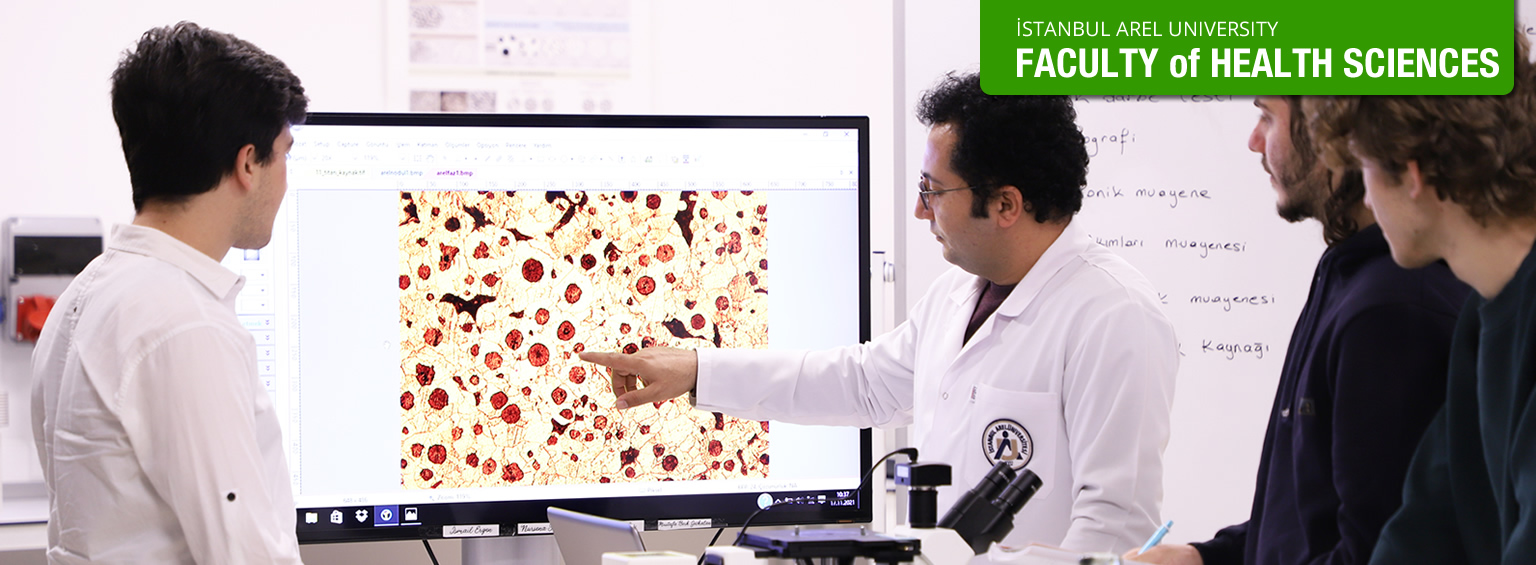Program Learning Outcomes
Child DevelopmentFACULTIES
HEALTH SCIENCES

Program Learning Outcomes
1. Defines the basic concepts related to child development and pre-school education.
2. Determines the approaches in the field of education and developmental psychology.
3. Recognizes the cultural, social and psychological elements of child development and pre-school.
4. Distinguishes the Basic Laws of National Education at the pre-school level.
5. Plans the teaching-learning process according to the developmental characteristics and individual differences of children.
6. Meets the needs of children by evaluating the developments in the field of child development and pre-school in a multi-faceted way.
7. Takes into consideration the readiness of children at the pre-school level, it organizes the educational environments so that they can learn at the highest level.
8. Develops tools and materials for children to learn at the highest level, taking into account their readiness at pre-school level.
9. Takes responsibility individually or as a team member in the execution of complex and unpredictable activities encountered in practices related to his field.
10. Carries out an advanced study in the field independently.
11. Manages the activities for the development of the employees under his/her responsibility within the framework of a project.
12. Takes risks and responsibilities in the realization of knowledge, ideas, practices or technologies that bring innovation to the field.
13. Takes responsibility in transforming his knowledge and skills into an idea/approach/technology/product with high social/cultural/economic value by evaluating the risks and opportunities related to his/her personal, professional
and/or field of work; develops entrepreneurial competence, individually or as a team member.
14. Evaluates the advanced knowledge and skills acquired in the field with a critical approach.
15. Determines learning needs, plans and manages activities aimed at improving the performance of himself/herself and those under his/her responsibility in line with learning objectives.
16. Informs the relevant persons and institutions on the issues related to his/her field by conveying his/her thoughts and solution proposals for the problems verbally and in writing.
17. Shares his/her thoughts on issues related to his/her field and solution suggestions for problems with experts and non-experts by supporting them with quantitative and qualitative data.
18. Follows the developments in the field and communicates with colleagues by using a foreign language (English) at least at the European Language Portfolio B1 General Level.
19. Uses information and communication technologies as required by the field, based on the computer usage competence defined in the Advanced Level of the European Computer User License.
20. Organizes and implements projects and activities for the social environment in which it lives with the awareness of social responsibility.
21. Acts in accordance with social, scientific, cultural and ethical values in the stages of collecting, interpreting, applying and announcing the results of the data related to the field.
22. Organizes activities related to its field in line with the awareness has gained on the universality of social rights, social justice, quality culture and protection of cultural values, environmental protection, occupational health and safety.



